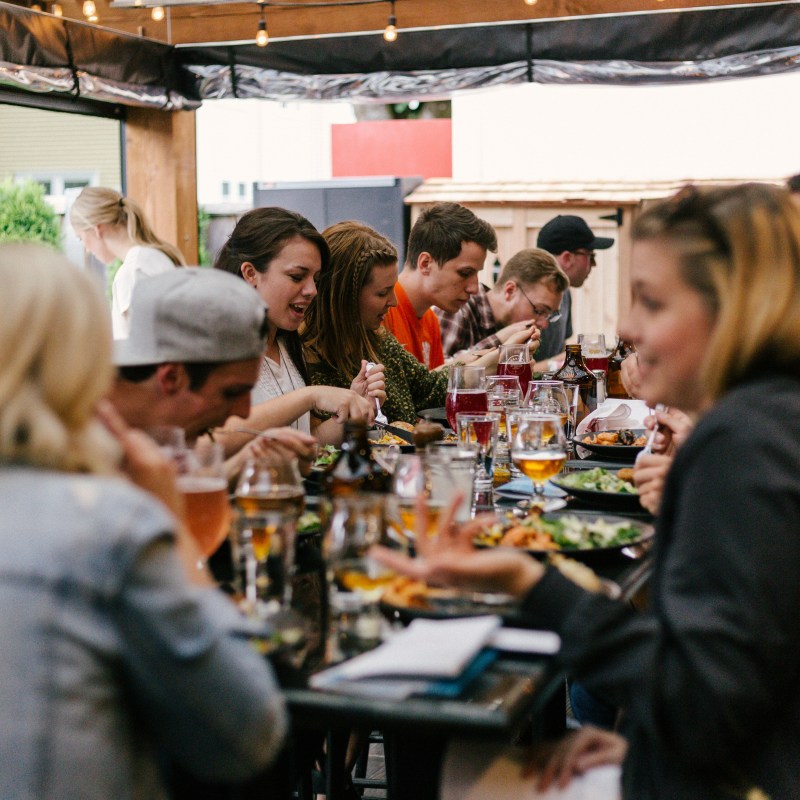
It seems like everyone has Miami on their radar—and for good reason. It’s not quite like any other US city due to a variety of factors.
Videos by TravelAwaits
The first thing visitors notice is its tropical climate and sprawling sand beaches. After that, it’s likely the prevalence of Spanish language and cultural influences from the Caribbean, Central America, and South America.
But that’s just the tip of the iceberg.
Miami is also a mecca for sports lovers and the home of Lionel Messi. It’s a favorite for celebrities of all stripes, along with tourists. And it’s distinct from the rest of the Sunshine State thanks to its intercultural identity.
In fact, to say that Miami is a cultural melting pot might be an understatement.
And one of the best ways to dig into local culture (pun intended) is through a city’s restaurants and street vendors. Wondering where to eat in Miami? You’ll have access to so many diverse options that you can leave behind the standard American menu.
Here’s what you need to focus on.
Little Havana
Separated by around 150 miles, Cuba’s capital of Havana and the city of Miami are worlds apart. But you won’t fail to notice many similarities—especially when it comes to food. Debates rage about which of the historical and newly launched restaurants in Little Havana are worth exploring.
Officially speaking, Versailles Restaurant is listed as the most famous Cuban restaurant in the world. Other hits include Sanguich de Miami and Café La Trova.
But if you can’t be bothered to create your own itinerary—don’t worry. There are food tours galore that will take you around Little Havana. I recommend going with Miami Culinary Tours if you want an up-close look at this neighborhood and its staples.
Little Haiti
Little Haiti doesn’t get quite as much publicity as Little Havana in discussions about where to eat in Miami—but I’ve been swept away by the colorful, Caribbean-style streets and positive restaurant reviews.
In Little Haiti, you can find some of the best Caribbean staples the city has to offer. That includes Haitian treats and hits from other Latin American countries.
Chef Creole and Naomi’s are some of the most famous Haitian locations. I’d personally spend my time at Naomi’s thanks to its lush green garden.
There’s also Chez Le Bebe, a laidback spot that focuses on griot. Griot is a Haitian dish that includes fatty pork along with rice and beans. As a rice-and-beans fan, sampling griot would be a priority for me.
But don’t forget about smaller eateries. Piman Bouk is a classic Haitian bakery where you can sample delicacies from the country, like Haitian patties and peanut brittle. Then there’s Lakay Tropical, a Haitian-centric ice cream shop.

Other options in Little Haiti
As mentioned above, you can find other multicultural meals in this neighborhood. Fans of Argentinian food can sink their teeth into pizza at Sur or a larger (and likely meat-centric) meal at Fiorito.
If Jamaican is a priority, then head to Clive’s Café. This classic spot seems to be a cult hit in the city—which means it should be high on your list. I’d go for the oxtail, as it seems to be their highest-rated meal.
Little Haiti is still a bit under the radar for tourists, which means walking tours are harder to find. I recommend checking out this tour from TripAdvisor or this one from Viator.
Miami specialties
I could keep rambling about where to eat in Miami. Before I log off, I’m going to leave you with some of the most intriguing little morsels I found during my research.
If you head to the city, sample these delicacies, too:
- Fried gator. It’s a native thing, I’m told. Locals like to eat fried gator at Kush Wynwood or The Pit BBQ.
- Late-night sandwich at La Sandwicherie. This place dates back to Miami’s absolutely insane (and neon-tinted, I imagine) 90s club scene. The sandwich consists of pate, brie, lettuce, tomato, and French vinaigrette. (You try it and tell me how it is.)
